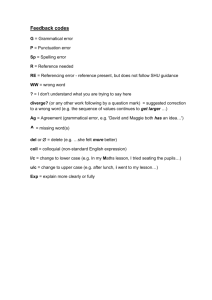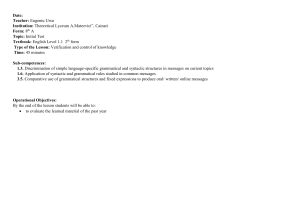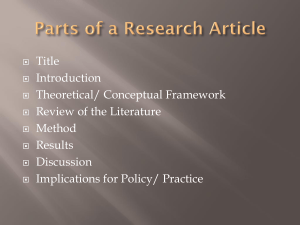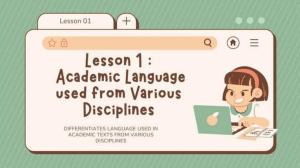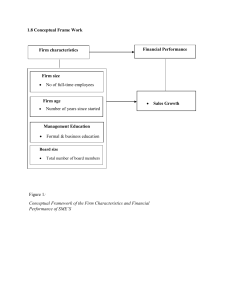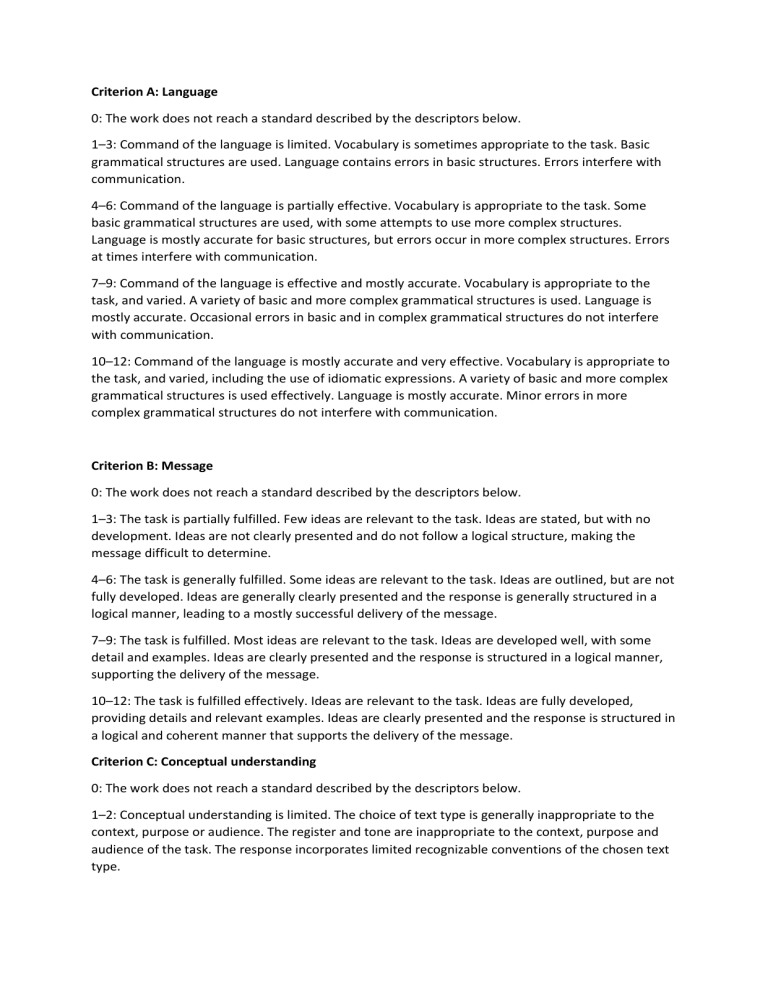
Criterion A: Language 0: The work does not reach a standard described by the descriptors below. 1–3: Command of the language is limited. Vocabulary is sometimes appropriate to the task. Basic grammatical structures are used. Language contains errors in basic structures. Errors interfere with communication. 4–6: Command of the language is partially effective. Vocabulary is appropriate to the task. Some basic grammatical structures are used, with some attempts to use more complex structures. Language is mostly accurate for basic structures, but errors occur in more complex structures. Errors at times interfere with communication. 7–9: Command of the language is effective and mostly accurate. Vocabulary is appropriate to the task, and varied. A variety of basic and more complex grammatical structures is used. Language is mostly accurate. Occasional errors in basic and in complex grammatical structures do not interfere with communication. 10–12: Command of the language is mostly accurate and very effective. Vocabulary is appropriate to the task, and varied, including the use of idiomatic expressions. A variety of basic and more complex grammatical structures is used effectively. Language is mostly accurate. Minor errors in more complex grammatical structures do not interfere with communication. Criterion B: Message 0: The work does not reach a standard described by the descriptors below. 1–3: The task is partially fulfilled. Few ideas are relevant to the task. Ideas are stated, but with no development. Ideas are not clearly presented and do not follow a logical structure, making the message difficult to determine. 4–6: The task is generally fulfilled. Some ideas are relevant to the task. Ideas are outlined, but are not fully developed. Ideas are generally clearly presented and the response is generally structured in a logical manner, leading to a mostly successful delivery of the message. 7–9: The task is fulfilled. Most ideas are relevant to the task. Ideas are developed well, with some detail and examples. Ideas are clearly presented and the response is structured in a logical manner, supporting the delivery of the message. 10–12: The task is fulfilled effectively. Ideas are relevant to the task. Ideas are fully developed, providing details and relevant examples. Ideas are clearly presented and the response is structured in a logical and coherent manner that supports the delivery of the message. Criterion C: Conceptual understanding 0: The work does not reach a standard described by the descriptors below. 1–2: Conceptual understanding is limited. The choice of text type is generally inappropriate to the context, purpose or audience. The register and tone are inappropriate to the context, purpose and audience of the task. The response incorporates limited recognizable conventions of the chosen text type. 3–4: Conceptual understanding is mostly demonstrated. The choice of text type is generally appropriate to the context, purpose and audience. The register and tone, while occasionally appropriate to the context, purpose and audience of the task, fluctuate throughout the response. The response incorporates some conventions of the chosen text type. 5–6: Conceptual understanding is fully demonstrated. The choice of text type is appropriate to the context, purpose and audience. The register and tone are appropriate to the context, purpose and audience of the task. The response fully incorporates the conventions of the chosen text type.
